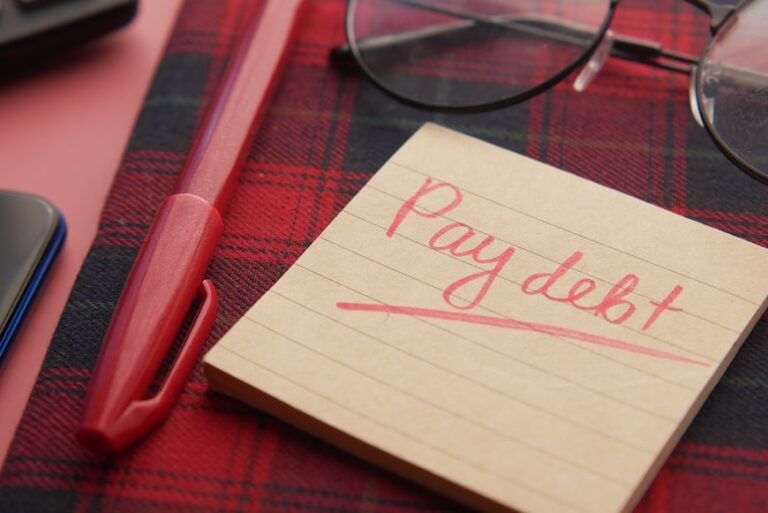Last updated Feb. 19, 2023 by Peter Jakes
Do you believe you are underpaid? Are you tired of not making enough money? Or, does your lack of income make it hard for you and your family to pay the bills? Are you noticing Signs You Don’t Make Enough Money? Here’s What to Do.
Going to work every day and getting paid less than you are worth can be hard on your emotions and wallet. But, even if you don’t get the raise you think you deserve, you may have more control over your income than you think. Here are some things you can do if you feel you don’t make enough.
What Does it Mean to Have ‘Enough’ Money?
If you’re like most Americans, you probably don’t feel like you belong. You might also feel like
- You don’t have enough money in the bank,
- Your living costs are increasing, and making ends meet is getting harder.
- You don’t have enough money to support your family
- The money you make is not enough for you to survive.
- Your salary is not enough for you to get by.
In times of economic instability and inflation such as this, it’s hard not to worry about having enough money.
So, what does “enough” mean, and how many people don’t think they have it? To find out, we asked more than 1,000 Americans.
- 70% of Americans think they don’t make enough money, and 72% think they don’t have enough money saved or invested.
- Eighty-two percent of Americans say they don’t have enough money for at least one necessary expense.
- 66 percent of Americans say they don’t have enough money for health-related costs, 55 percent for housing costs, and 37 percent for food.
Even though everyone has different needs, most people have the same trouble meeting them.
Since most Americans live paycheck to paycheck, most of the country has to work monthly to make ends meet.
So, how much money does the average American need to meet their needs? Here is what we learned.
Research has shown that the cost of living has increased for most families by an average of $276. So, it’s no wonder that people feel like they don’t make enough money.
The 2020 U.S. census said that the median income for a household was $67,521, but our average respondent thought an excellent income would be about $7,600 more than that.
Signs That You Don’t Make Enough Money

Before you decide you don’t make enough money, you should look at the signs that show you don’t.
Knowing these signs is essential because many people make a good living, but how they spend their money keeps them on the edge of poverty, with feelings of want and not having enough money.
You might think you make good money because of the numbers, but you might still struggle to pay your monthly bills. You might not make enough money, spend too much, or maybe both.
Problems like these can lead to real financial problems. If you don’t make enough to pay your bills, you need to start taking steps to make more money right away.
A budget can help you get back on track, even if you feel like you don’t have enough money to make a plan.
Find out these seven signs to tell if you don’t make enough money and ways to fix it.
Sign 1: You Can’t Cover Your Bills
If you have to choose which bills to pay each month, you have a problem with money. It’s essential to do something right away to fix this problem.
Look for ways to lower your bills, like moving to a place where rent is cheaper or selling your car.
Cut your lifestyle when you feel like you don’t make enough money.
To cut back on your lifestyle, you must cut back on all your luxuries. It could mean getting the most basic plan for your cell phone and giving up cable TV.
Instead of eating, cook at Home and stick to a tight grocery budget. If you want to watch a movie, you might have to rent it instead of going to the theater.
You can still enjoy life even if you don’t have much money, but you have to be smart about how you spend it.
Sign 2: Using Your Credit Cards Every Month

One of the most obvious signs that you don’t have enough money is that you have to use credit cards to pay for everything at the end of the month.
So if you run out of money during the month or use credit cards to get by until your next paycheck, you probably have a problem with your income.
At first, this may not seem like a big problem, but it will only worsen as your balance and credit card payments go up.
Check out this article: How to Change Your Credit Card Due Date
If you feel like you don’t make enough money, use your credit cards less.
It might seem complicated to stop using your credit cards when you don’t have enough money to pay for the things you need.
But using cash for everyday purchases can help you control how much you spend.
Sign 3: When You Can’t Handle an Emergency
It’s difficult to save money for an emergency when your monthly budget is low. However, this sets off a chain reaction. You may be forced to use your credit cards if you cannot handle a crisis.
Your credit card expenses will eventually become so large that they will damage you even more.
Even if you cut back, if you don’t have any additional money to save for an emergency fund each month, you don’t make enough money.
Set up an emergency fund when you feel you aren’t making enough money.
If you are struggling to make ends meet, it may appear absurd to save money every month. Having money set aside for emergencies, on the other hand, can provide you with peace of mind and allow you to focus on other goals and challenges.
You might begin with $50 extra per pay cycle and gradually increase it. Your emergency fund should contain between $1,000 and one month’s salary.
Step 4: You Are Not Reaching Your Financial Goals
If you are barely getting by and not making any progress on paying off your debt or saving money, you probably aren’t making enough money.
Even though this situation may not be as bad as the ones above, it is still bad enough that you may want to do something to change it.
You need to do something about this before it gets worse and stays that way.
Make sure your financial goals can easily be achieved if you feel you don’t make enough money.
A good goal might be to get out of debt in a year, but this may not be possible if you owe close to $30,000 and only make $40,000 a year.
Make sure that the goals you set can be reached and are transparent. It could be paying off one credit card by the end of the year or sticking to your budget while you work on your debt.
Then, step by step, you can start to make fundamental changes to your money.
Sign 5: You Run Out of Money at The Beginning of the Month
You can have a lousy month once in a while. But if you always have trouble making ends meet after the fifth month, you probably have a problem with your income.
Running out of money at the beginning of the month clearly indicates that spending too much money is likely not the problem.
On the other hand, if you can barely pay your essential bills, you are not making enough money. You might feel like you’ve already spent your pay before you get it.
If you don’t think you’re making enough money, a new job might be the best way to make more.
But getting a second job or working on side projects can help you pay down debt and build up an emergency fund to do more than stay afloat.
If this is going to be a long-term problem, you might want to consider returning to school to get a job that pays more.
Sign 6: You Are Constantly Worried About Money
There is a distinction between fretting about how to pay for an unforeseen car repair and getting a sick knot in your stomach every time you think about paying for groceries or the rent.
If money worries keep you up at night, likely, you’re not making enough money. Use some of your fears to help you make a plan that will turn things around.
Stop handling your money in a panic, especially when you think you don’t have enough money.
A budget lets you plan for what you want to buy. With an emergency fund, you can pay for unexpected costs.
When you make more money, you have more room in your budget. If you go from one financial crisis to the next, you won’t be able to make progress on your goals.
Using these tools will help you make a budget and stick to it.
Don’t Make Enough Money? Here’s What to Do

Now that you know the signs that show you don’t make enough money, here’s what to do.
When you don’t make enough money, you’ll need to take a few steps to get your life back on track. But, of course, things can’t be fixed overnight, so if you want to fix them, you should be ready to work hard for a long time.
Read also, How to Cancel a Pending Transaction on a Credit Card, Debit Card, and PayPal
1. Create an additional income stream
Even if your bills are paid on time, you won’t get very far unless you make more money. Only by making more money can you work toward having “enough money.”
It will get you to your financial goals faster than if you just cut your spending. But many people think it’s hard to make more money.
But in reality, it doesn’t have to be that way!
Getting another source of income outside your regular job is a great way to increase your income quickly. But, most of the time, you can make money doing something you enjoy.
Related: 37 Highest Paying Online Jobs – Earn $50,000+ At Home
There are many ways to make extra money, like selling clothes, babysitting, starting a blog, doing woodwork, or something else.
2. Make a List of your Income and Expenses
To start, you’ll need a pen and paper to write down your costs. First, go through your bank account and write down everything you’ve spent money on in the last three months. Make sure to write down the amount and the date of the month.
After you’ve written down your costs, it’s time to write down what you make. Making a list of your income and expenses should be easy if you only get paid once a week or twice a month. However, if your income changes weekly or month to month, do your best to determine the average.
Instead of overestimating your income, it is better to underestimate it. Knowing about money is one way to figure out what to do when you don’t think you make enough money.
3. Create a List of Your Financial Achievements

Even though you don’t have the final say on whether or not you get a raise, there are things you can do to improve your chances of getting one. For example, keeping track of your accomplishments is one way to show your boss that you should get a raise.
Now is the time to keep track of your work accomplishments if you haven’t already. Think about the last year or two. What stands out as something unique? Did you make a system or process better? Save money for the company? Take on another project?
Managers don’t always realize how much value their employees bring to the company. They may be impressed or even shocked when they find out how much you have done for the company. You’re taking a step toward getting a raise by listing your accomplishments.
4. Cut Down on Your Expenses
All personal finance experts talk about how important it is to cut back on spending that isn’t necessary. They will tell you to live in a cheap house, shop at thrift stores, drive a cheap car, etc.
But you might have to cut back even more if you make less money. So, in addition to moving to a cheaper neighborhood, you might need to give up a few premium subscriptions, pack your lunch for work, find more affordable places to buy groceries, etc.
The goal is to try to cut spending as much as possible. But, of course, the amount you need to cut back depends on many things, like:
- How much you earn,
- How much you need to save
- Whether or not you expect your income to go up in the future.
5. Take on Additional Work in the Office
Could your boss use your help with some extra tasks? Do you have the chance to work extra hours? Would taking on more work make your case for a raise stronger?
Volunteering for extra projects is often a sign that you are serious about your career and want to help your company do well. And if you ask for extra work, you might get to work on something that isn’t usually part of your job. In addition, this will help you improve your skills.
6. Talk to Your Employer About a Salary Raise

It can be scary to talk to your boss about your pay. But that’s not necessary.
You may already get along well depending on how well you know your boss. Most managers know that their employees want to get paid more, so the conversation won’t be as shocking to them as you might think.
Ask your boss what you can do to make yourself more valuable to the business. Sometimes, letting your boss know you want to take on more responsibility is all it takes to get the raise you want.
7. Save All You Can
If you notice the signs that you barely have enough money to pay your bills, you must make an intelligent budget and save as much as possible.
Related: 10 Simple Ways To Save Money (Tips For Any Budget!)
Emergencies happen, and if you don’t make enough money to make ends meet comfortably, getting back on your feet will be even harder after a roof leak or a medical bill. So save as much as possible in an emergency fund to get ready and protect your money.
8. Start Living Below Your Means Even When You Think you Have Enough
If you live on a tight budget, you might be tempted to spend more when you get more money. For example, if you get a raise at work, you might want to move to a more popular neighborhood immediately.
Or, after your supplier pays a long-overdue bill, you might feel like you need a new fridge.
But don’t do this. Instead, put the extra money into a business that can make money so you can make more money in the future. There are many ways to put the extra money to work to make more money.
Please read our article on How to make money fast (in different ways).
9. Focus on What You Have (Not What You Don’t)
Trying to make more money is a huge distraction from actually trying to get money. It’s not fun to think about all the money mistakes you’ve made and how you got to where you are now.
On the other hand, everyone wants to make more money to pay their bills and buy the things they want.
If we had a certain amount of money in the bank, if all of our debts were paid off, or if we had a certain amount of money coming in, then and only then would we think you could stop worrying about not making enough money.
You move backward when you worry that you’re not making enough money. Of course, focusing on what you have doesn’t mean you shouldn’t try to reach your goals.
But worrying about not making enough money won’t change your money situation right away.
Focusing all the time on what you don’t have can make you worry about money. When you think about what you don’t have, you go against the laws of the universe and make yourself feel less rich.
So, in addition to all the practical ways to make more money, what will help you is to change what you focus on.
10. Plan EVERY Dollar, EVERY Paycheck

Planning every dollar of every paycheck around your most critical financial goals is key to making your money work.
You will realize that you were making excuses for spending small amounts of money because you thought the lie that “it doesn’t matter anyway because you don’t have enough money.” When you start keeping track of every dollar and planning how to spend it ahead of time, your finances will improve immediately.
Check out these 17 Blank Budget Worksheets to Manage Your Money
Planning every paycheck means you should make an appointment with yourself every time you get paid to look at your income, the bills due the following week, and your current financial goals. Then, when you have a plan, stick to it.
11. Pawn Your Valuables
If you don’t think you make enough money, you could pawn something valuable to get cash quickly. But, of course, you’ll have to pay the loan with interest if you want those things back. You’ll lose the item if you don’t pay it back on time.
Don’t do it if it’s important to you in and of itself. But if it doesn’t, you might want to think about it, depending on your situation. On Facebook Marketplace, you can also set your price for the things you want to sell.
Related: 40+ Easiest Things to Flip for Profit
How Can You Save and Invest?
When you notice the signs that you don’t make enough money? Here’s What to Do. To begin, divide your holdings into liquid and illiquid assets even if you don’t have much money to invest.
Described, “liquid savings” are funds that can be accessed anytime. It’s similar to having a checking and a savings account. The liquid savings is for your day-to-day expenses and any unexpected expenses.
To pay someone, you must know how to write a check or use a payment tool such as Venmo, PayPal, or Apple Pay.
What does this thing lack? It’s referred to as “illiquid assets,” a type of money that is difficult to obtain.
Illiquid assets include anything from your stock portfolio to the shoes you’re attempting to sell online for a profit.
You can’t merely withdraw your money from these investments, and if the asset has a predetermined maturity date, there may be penalties if you do.
Why would you want money you can’t access quickly?
Simple: The rate of return for illiquid savings is usually higher than that of a checking or savings account. But having both is just as important.
If you have no savings right now, the most important thing is to figure out how much your monthly bills cost and put away three to six months’ worth of bills in a savings account or a financial app.
So, figure out where you can cut a little spending to save more money. Everyone needs an emergency fund to keep their heads above water if something terrible happens.
You can also get a weekend job. You can sell your unused items or flip them for money.
Check out this article on 40+ Easiest Things to Flip for Profit.
You can also do micro gig jobs for a quick payout. See these 49+ Best Gig Economy Jobs Apps That Will Pay You Real Money
I Don’t Make Enough Money To Live on My Own
What should you do if you feel you don’t earn enough money to support yourself or you see the signs that you don’t make enough money? First, consider how much money you require to live independently.
Before you can move away, you must determine how much money you will require to live. Because it will just be you, you will need enough money to cover your expenses.
Your circumstances determine your “number” for moving out. First, determine how much money you need to live comfortably depending on your living expenses and debts.
Before you relocate, look into the prices of flats and houses to see what you can afford. Then, create a budget that accounts for your expenses, such as rent, utilities, groceries, internet, phone, insurance, and transportation.
If you can afford to pay for these items and still have money left over, you may be ready to live on your own.
Here’s What To do if you feel you don’t make enough money to live on your own
1. Be Resolved
Take the time to consider all your options before deciding whether or not to live on your own. Then, make a firm decision to do whatever it takes to pay the bill.
You may have to put in extra hours or take on extra work, but you will not be sorry.
2. Seek Out Good Financial Advice
Consult with competent people you can trust to give accurate information and help you make a decision. When pursuing a goal, share it with others who can assist you along the way.
Seeking good financial advice is not to say that you must take everyone’s advice, but it is an excellent place to start hearing from individuals who are knowledgeable about money.
3. Set Financial Goals
You are not required to move out immediately if you wish to do so. Instead, you can set goals for yourself in advance, such as saving a particular amount of money or locating the perfect place.
Choose a few goals and devote all of your time and energy to achieving them.
4. Get accountability Partner
Consider getting a friend to help you keep your word if this is something you decide to do. If you want them to keep tabs on your progress, ask them to do so regularly.
5. Get a Job
If you wish to live on your own, you’ll need a source of money. So be prepared to take on many occupations to earn enough money to live on your own.
You’ll need to get a job if you don’t have any money saved up. See these best weeked jobs that pay real money.
I Don’t Make Enough Money to Survive.
Whatever we do, we can’t seem to make enough money, and we can’t break the cycle of living paycheck to paycheck. As a result, some families struggle to make ends meet every month, no matter how frugal or wise they are with their money.
If you’re struggling to make ends meet each month, there may be nothing you can do to improve your condition. I’m not going to lie and tell you that it will be easy, but there are some things you and your family can do to make it a bit easier.
Once you’ve determined why you’re not making enough money to live, you may begin to address the issue. It may take a month or more to get yourself and your budget where your family needs to be, but if you work hard enough, you will begin to see the light at the end of the tunnel.
What to Do When You Don’t Make Enough Money to Survive
To get yourself back on track when you don’t have enough money, there are a few things you’ll need to do. If you’re serious about fixing the problem, you’ll have to put in the time and effort it will take.
1. Create a New Budget
If you always say, “I don’t make enough money to get by,” it’s clear that your budget isn’t working. Creating a new budget means you need to make a budget for your family that works. Also, it might help to change how you’ve been making your budget.
2. Reduce Expenses
You only have one choice if you still have significant bills to pay after putting all your money into a budget. You need to cut back on your spending and ensure you don’t fall for frugal living myths that will cost you more money than they save you. When you’re having trouble making ends meet, it can be hard to see where you could cut back on your living expenses.
See this 21 Ways To Make Budgeting Fun
3. Change Your Money Habits
Changing your money habits will go a long way when you notice the signs that you don’t have enough money.
As you try to cut your spending and make more money, you should also try to figure out what bad money habits you have. After all, they are probably the main reason your family has trouble making ends meet.
Switch to a cash-only budget if you spend more money with your debit or credit cards. If you like to shop at thrift stores, plan to stay away from them until you have more money. If you eat out too much, learn how to plan a menu and eat at Home instead.
I Don’t Make Enough Money to Help My Family

Being concerned about not earning enough to support your family is natural. When in difficulty, many people turn to their loved ones and family members for assistance.
When people lose their jobs abruptly or are struck with big medical bills, they regularly find themselves in a financial jam.
Even the most well-meaning family members can face financial devastation due to a loved one’s financial difficulties.
You can only do so much to help financially distressed family members without endangering your well-being.
1. Assign Small Tasks to Family Members and Pay Them
If you don’t want to lend money to family members or don’t have enough money to give them cash gifts, you could hire them to help with tasks at a price you both agree on.
You can pay them for their help with what you make. This extra job could help your family members earn a lot of the money they need to pay their bills and help you finish any tasks you’ve been putting off.
Treat the arrangement like any other job: be clear about what needs to be done, when it needs to be done, and how much it will cost. Make sure to include a clause about what will happen if work is bad or not done.
2. Create a Bill-Paying Plan With Your Family Members
People suffering financial difficulties frequently do not know where their money is going. If you’ve previously utilized a budget to manage your own money, you might also be able to assist your family in creating and adhering to a budget.
To break the ice, offer to show them your budget and how you pay your expenses and explain how it helps you make financial decisions.
You’ll be able to show them where they may cut back on spending or try to create more money as you work together to help them get their finances in order.
3. Give your family Members a Cash Gift
If someone you care about is having difficulty getting money in the short term, you should consider giving them money right now. Determine how much you can offer without jeopardizing your cash.
Then, you can offer the most you can afford all at once (and inform your loved one) or give smaller gifts every month until the problem is resolved.
Make it clear that the money is a gift, not a loan that must be repaid, so you don’t place the person receiving it in an unpleasant situation.
Don’t miss this 10 Best Free Personal Finance Software (2022 Update)
Bottom Line
When you have trouble making ends meet or have noted the signs that you don’t make enough money, the most important thing to know is why you live paycheck to paycheck.
If you don’t understand why something wrong is happening to your family, you can’t take the steps you need to fix it.
You might not be making enough money to live, but if that’s not the case, you have a problem that needs to be fixed.
Once you figure out why you can’t make enough money to pay your bills and live well, you can start fixing the problem.
It might take a month or more to get yourself and your budget where they need to be, but if you work hard, you’ll start to see the light at the end of the tunnel.
If you’re still feeling like you don’t have a grasp of your financial life? Then, head straight for these 30 Budget busters that hinder your savings.
Frequently Asked Questions (FAQs)
Q: What jobs can I do to do extra income?
Here are a few side jobs you can do to make an extra income:
- Find employment as a freelance writer on ProBlogger.
- As a virtual assistant on Upwork, you can support a business owner.
- Learn new skills and earn money by taking online courses for entrepreneurs.
- Learn how to drive for Uber.
- Task Rabbit can assist you with domestic tasks.
- Pick up the occasional Craigslist job.
- And even more!
Q: Should I tell my boss I don’t make enough money?
Do some wage research before asking for a raise to learn what people in your profession make in your area.
For example, if you discover that your income is lower than that of others in your job, you may be able to utilize this information to request a raise.
Q: How Can I be financially free?
In today’s financial difficulties, there is always a way out. An excellent place to start is with a budgeting app.
Then, take control of your finances and your life by becoming financially free.
Living within one’s means, being thrifty, and prioritizing the things one truly needs, such as food, shelter, and even vacations, are all part of the process.
Q: What if I don’t make enough money to cover all my credit card bills?
Consider a low-interest debt consolidation loan or a balance-transfer credit card with low or no interest for a specified period.
That can help lower your payments to a manageable level, but it only works if you don’t run up more debt.







